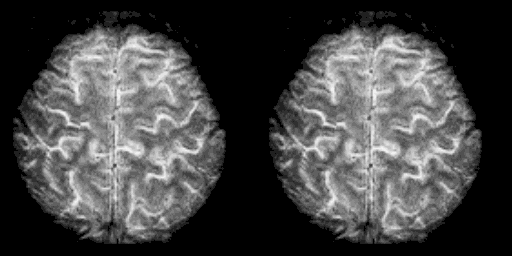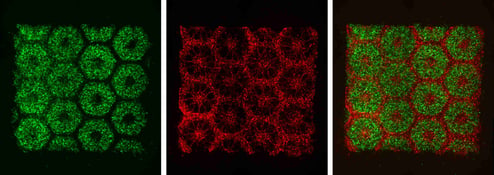UC Davis has a long history of ground breaking stem cell research. Possible therapies studied range from advanced wound healing, treating HIV, and reduced vision loss to the regeneration of bone in otherwise non-healing fractures. Now The California Institute for Regenerative Medicine (CIRM) has awarded UC Davis Medical Center scientists nearly $8 million in research funding to launch a special clinical trials program in Sacramento. The goal of the grant is to accelerate the development and delivery of stem cell therapies in human patients.
Read MoreTags: CA, Current Biotechnology Events, immunotherapy, Stem cell research, Human Stem Cell, California, Research Funding, laboratory equipment, research grant, laboratory equipment suppliers, UC Davis - Medical Center, Southwest Region, new research grant, UCD, Lab Supply, BioResearch Product Faire, Bioresearch Grant, Laboratory product sales, laboratory tools
UC Davis Medical Center’s Mind Institute was one of five institutes in the nation to win the NIH’s Autism Centers of Excellence Award (ACE). The $12 million, five year grant, will be used for the creation of the “Center for the Development of Phenotype-based Treatments of Autism Spectrum Disorder.” This new center will take a personalize approach to addressing autism spectrum disorder (ASD) treatment based on a child’s behavioral and biological characteristics. The goal will be to identify and tailor treatments that improve the quality of life for those with ASD.
Read MoreTags: CA, Current Biotechnology Events, California, NIH funded Research Projects, Autism, Research Funding, laboratory equipment, research grant, laboratory equipment suppliers, UC Davis - Medical Center, Southwest Region, new research grant, UCD, Lab Supply, drug evaluation, BioResearch Product Faire, autism research, Bioresearch Grant, Laboratory product sales, NIH awards 2017
Currently, there are no FDA approved medications for treating fragile X syndrome. That may soon change, thanks to a $11.5 million NIH grant awarded to UC Davis Medical Center. The new funding will allow researchers to test a new drug that is designed to improve language learning for children with fragile X syndrome. UC Davis is one of only two medical centers approved for the drug trail in the nation. Since UC Davis Medical Center is home to the renowned MIND Institute, which hosts the Fragile X Research and Treatment Center, it is a logical choice for the treatment study.
Read MoreTags: CA, California, Research Funding, Drug Development, research grant, UC Davis - Medical Center, Southwest Region, new research grant, UCD, drug evaluation, BioResearch Product Faire, Bioresearch Grant
Traumatic brain injury, or TBI, is the leading cause of disability among U.S. military personnel and veterans. What’s more, 50% of people with TBI develop spontaneous seizures. If the seizures become recurrent then the condition qualifies as Post-Traumatic Epilepsy, PTE. Now thanks to a 3 year, $750,000 research grant from the Department of Defense and the Army, researchers at Texas A&M will conduct a study on TBI to uncover the molecular and epigenetic mechanism of PTE.
Read MoreTags: Epilepsy, Texas A&M University, Texas, Research Funding, TX, research grant, Southwest Region, new research grant
The Laboratory of Neuro Imaging at the University of Southern California recently received a $21.7 million research grant from the National Institutes of Health to study epilepsy. Epilepsy is currently incurable, and the research team supported by the recent NIH grant will work toward finding a cure and developing treatments to prevent the condition.
Read MoreTags: CA, University of Southern California, Epilepsy, California, USC, Research Funding, research grant, NIH grant, NIH award, Southwest Region
Dr. Gürol Süel, a Molecular Biology professor at the University of California San Diego, has been named a HHMI-Simons Faculty Scholar by the Howard Hughes Medical Institute (HHMI), the Simons Foundation, and the Bill & Melinda Gates Foundation. This prestigious distinction includes a $1.5 million award to support Süel's research study on how bacterial cells use electrical signals to communicate with each other.
Read MoreTags: CA, University of California San Diego, California, UCSD, Research Funding, UC San Diego, research grant, Southwest Region, biofilms

(Image of brain by functional MRI via Wikimedia Commons)
Cognitive neurologist, Rosie Cowell of the University of Massachusetts, Amherst received a nearly $600,000 grant from the National Science Foundation. The funding will be used to develop and test her theory of how fine-grained visual perception interacts with the area of the brain critical to memory.
Read MoreTags: University of Massachusetts Amherst, University of Massachusetts, Bioresearch event, brain research, MA, research grant, Amherst, UMASS, Bioreseach, 2016, fMRI, Rosie Cowell
A team of nanoengineers at the University of California San Diego is creating 3D bio-printed liver tissue. This exciting new technology could change the game for researchers developing new medications.
Tags: UCSD research, UCSD, UC San Diego, research grant, Bioreseach, 3D printing, Dr. Shaochen Chen,, Dr. Shu Chien
 One common trait that all humans and animals share is the need for sleep. Even though sleep is a necessity for humans and animals to properly function, there are many disorders that interfere with sleep, such as insomnia and night terrors. Another disorder that certain animals experience is called "local sleep" where part of the brain sleeps while the animal is still awake. Two big questions researchers have are why this happens, and if it can also occur in humans. (Image courtesy of Wikimedia Commons).
One common trait that all humans and animals share is the need for sleep. Even though sleep is a necessity for humans and animals to properly function, there are many disorders that interfere with sleep, such as insomnia and night terrors. Another disorder that certain animals experience is called "local sleep" where part of the brain sleeps while the animal is still awake. Two big questions researchers have are why this happens, and if it can also occur in humans. (Image courtesy of Wikimedia Commons).
Tags: Midwest, WI, University of Wisconsin Madison, UWisc, 2015, BioResearch Product Faire Event, Madison, research grant, Sleep
 California is home to some serious unicellular research, and the National Institute of Health is taking notice. Bioresearch programs at California institutions accounted for a significant portion of the $7.9 million in grants which the NIH awarded to researchers studying single cells. The request for 2014 applications came from the NIH last December to fund programs related to many areas of cellular biology, including personalized treatment for diseases at a cellular level. The grants are supported by the NIH Common Fund’s Single Cell Analysis Program (SCAP) and represents a major boost for many of the 25 research teams that were chosen to receive funding.
California is home to some serious unicellular research, and the National Institute of Health is taking notice. Bioresearch programs at California institutions accounted for a significant portion of the $7.9 million in grants which the NIH awarded to researchers studying single cells. The request for 2014 applications came from the NIH last December to fund programs related to many areas of cellular biology, including personalized treatment for diseases at a cellular level. The grants are supported by the NIH Common Fund’s Single Cell Analysis Program (SCAP) and represents a major boost for many of the 25 research teams that were chosen to receive funding.
Tags: Bioresearch, Life Science Funding, grants, 2015, Research Funding, NIH, research grant, NIH grants

